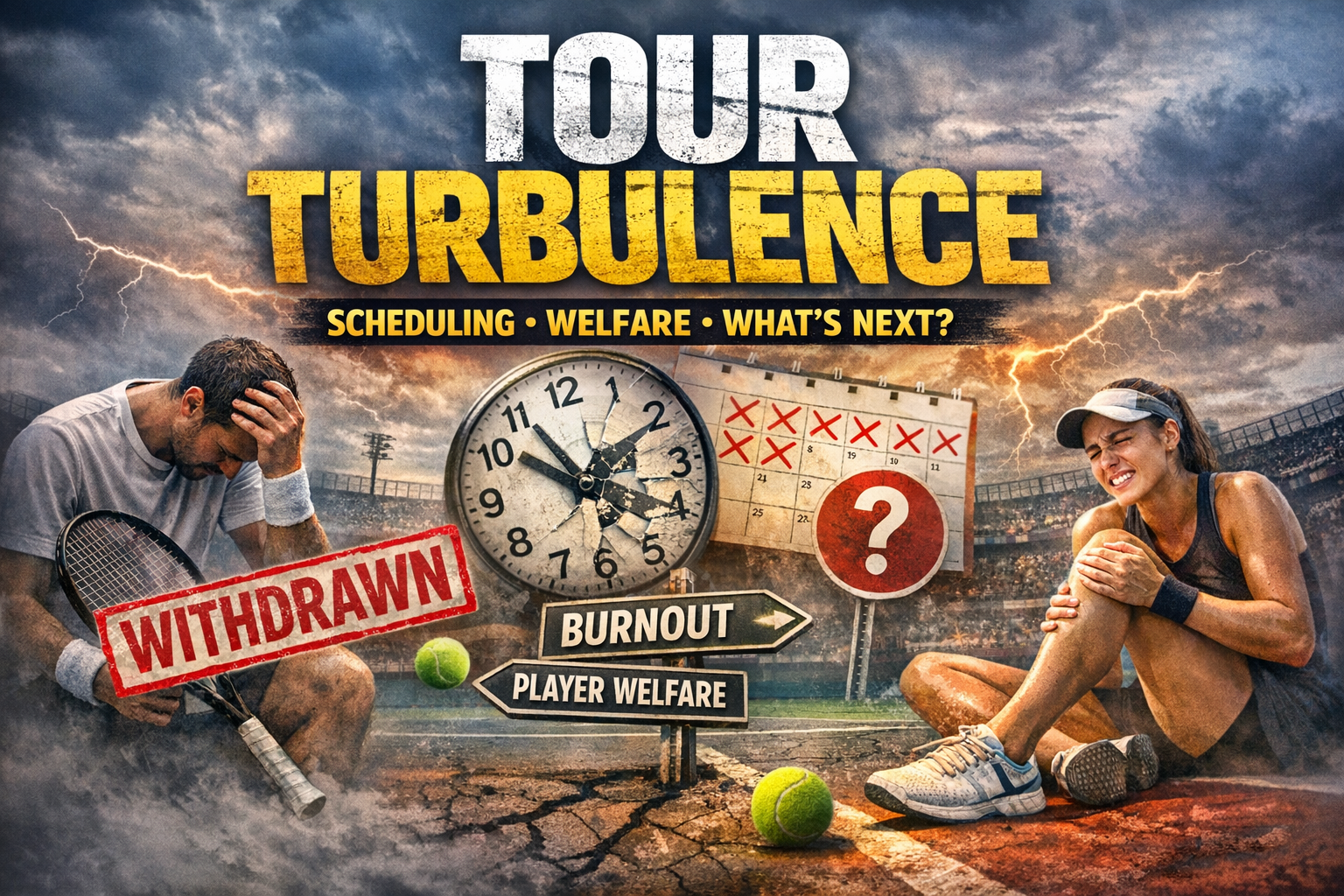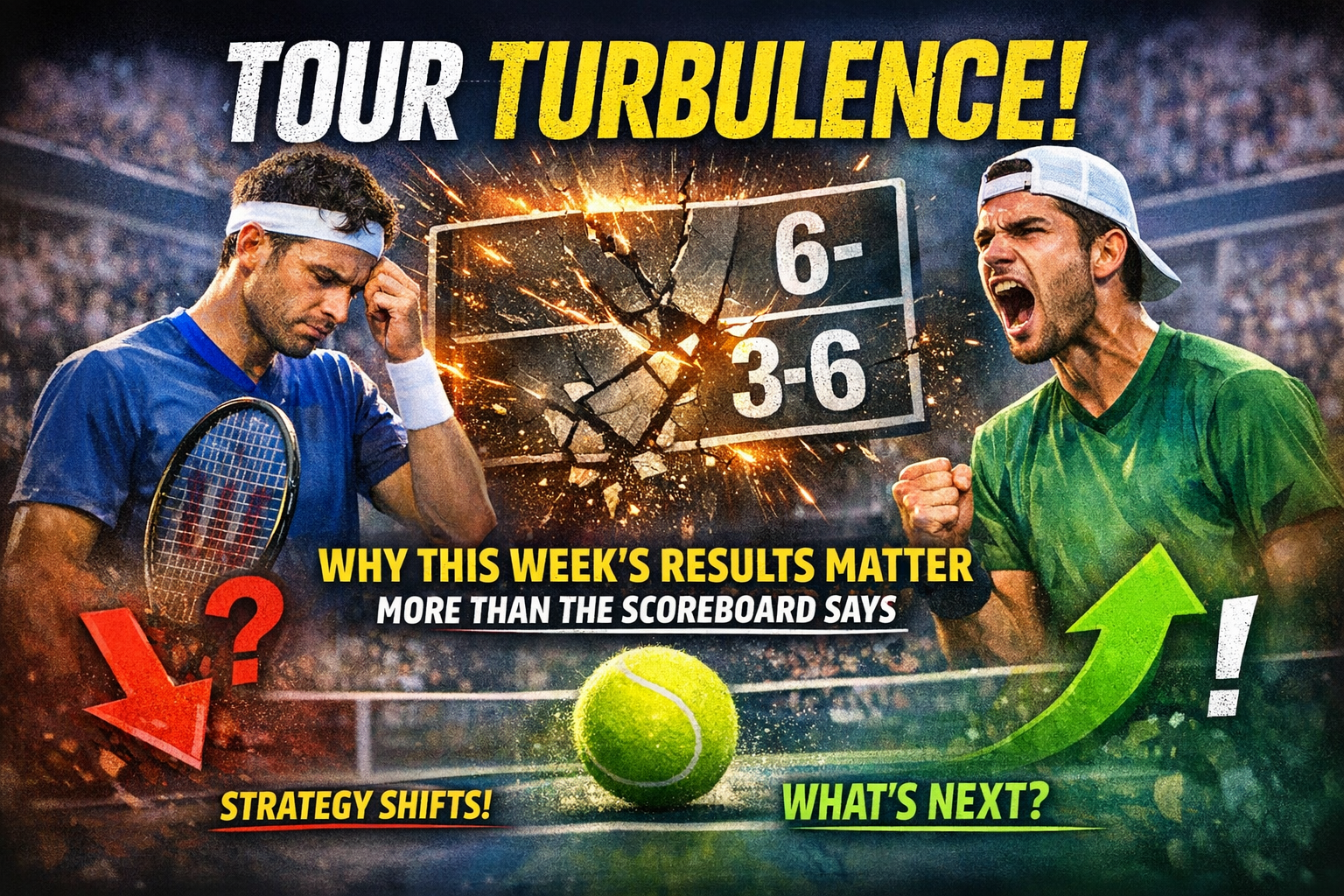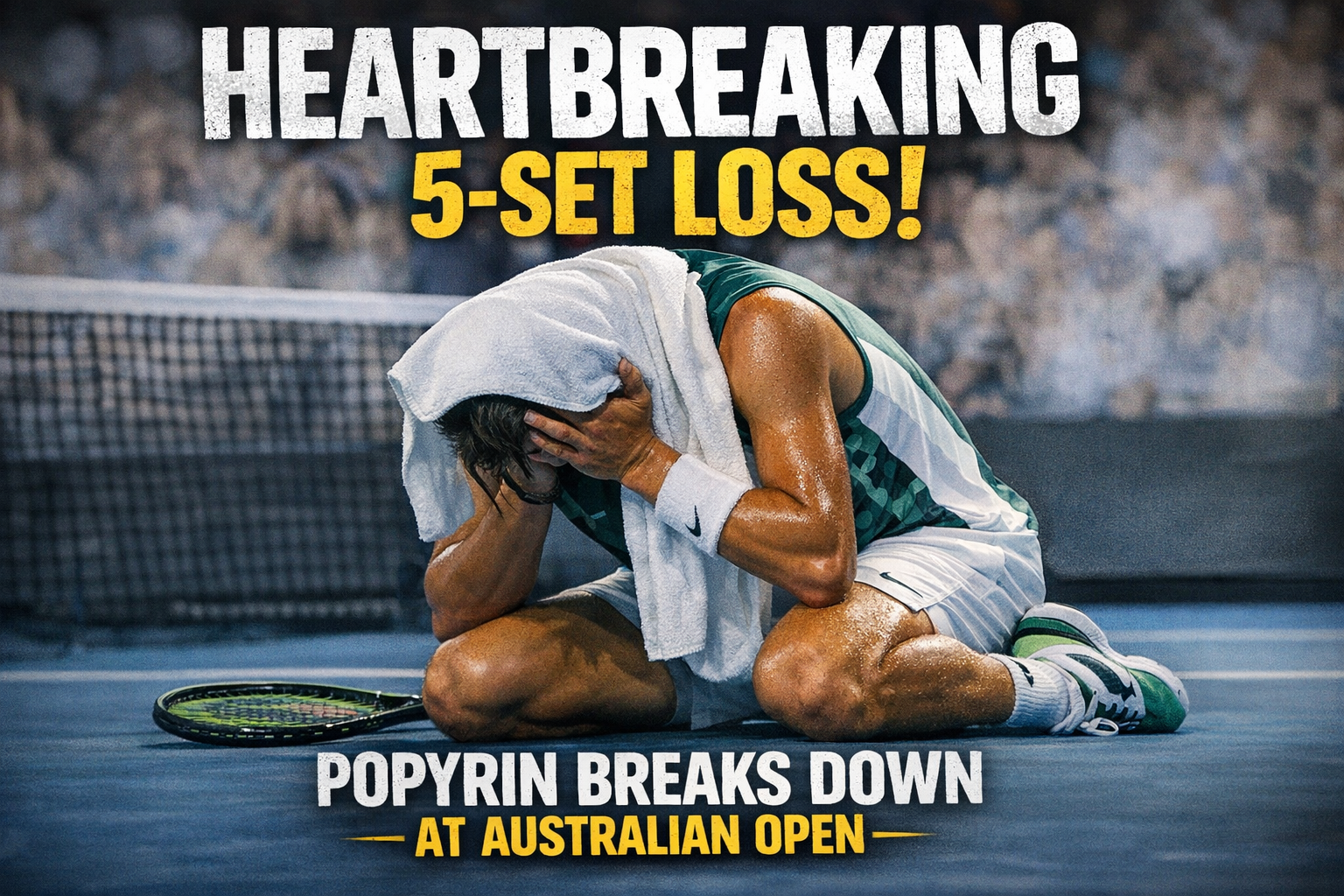-
Tour Shakeup: Veterans Pace Themselves While Young Players Push Forward
A transitional season on the professional tour is reshaping schedules, sparking surprise results and handing opportunities to rising players, with fan narratives and coaching shifts…
-
Tour Turbulence: Scheduling, Welfare And What Comes Next For Tennis
A cascade of withdrawals and scheduling complaints has put player welfare back under the spotlight, forcing tours, tournaments and fans to wonder what meaningful change…
-
Tour Turbulence: Why This Week’s Results Matter More Than The Scoreboard Says
A run of surprising results and tactical shifts has stirred the tour, forcing players and coaches to adapt. My Tennis Expert breaks down what changed…
-
Popyrin Breaks Down After Heartbreaking Five-Set Loss At Australian Open
Alexei Popyrin vowed to look deep after a five-set loss to Alexandre Muller ended his Australian Open in crushing fashion.
-
Coco Gauff’s Laugh Steals The Show As She Cruises Into Australian Open Second Round
Coco Gauff mixed serious tennis with a very human laugh during a post-match chat with Chris Eubanks, then got back to business after a tidy…
As tennis players, we are all unique and particular, and we want our tennis gear and equipment to be exactly how we want it. That’s why we review the greatest tennis gear and equipment from prominent companies like Babolat, Wilson, Head, Prince, Yonex, Dunlop, Tecnifibre and much more!
We have extensively researched all products, give you our unique view as tennis players, and bring the results into one spot so you can compare and choose which gear is best for you. Select the most relevant criteria from the list below, and you will be directed to the category of your choice.
Rackets By Skill Level
We have compiled a list of tennis racket reviews to assist you in selecting the best tennis racket for your game and skill level. To help you find the perfect tennis racket, we’ve broken them up by ability level below. Choose your ability level below and get started.
Custom Rackets
Whatever level of tennis you play, using the right kind of racket can have a significant impact on your performance. Most custom rackets are hand-assembled to meet your exact specifications for playing your best tennis ever.
If you know what specifications you require, don’t hesitate to contact our custom racket manufacturer partner by clicking the link below. If you need assistance or more information, their team will answer all of your questions and help you find the best racket for you.
On-Court Gear & Apparel
We have compiled a list of the best tennis shoes, bags, sunglasses, elbow braces and tennis apparel from the top tennis and athletic companies listed below. We spend numerous hours researching and reviewing every product. Get ready to hit the courts!
On-Court Equipment
Whether you’re looking for ball machines, balls, hoppers, strings, stringing machines, training aids, or overgrips, we reviewed everything you should ever need to play like a pro!





